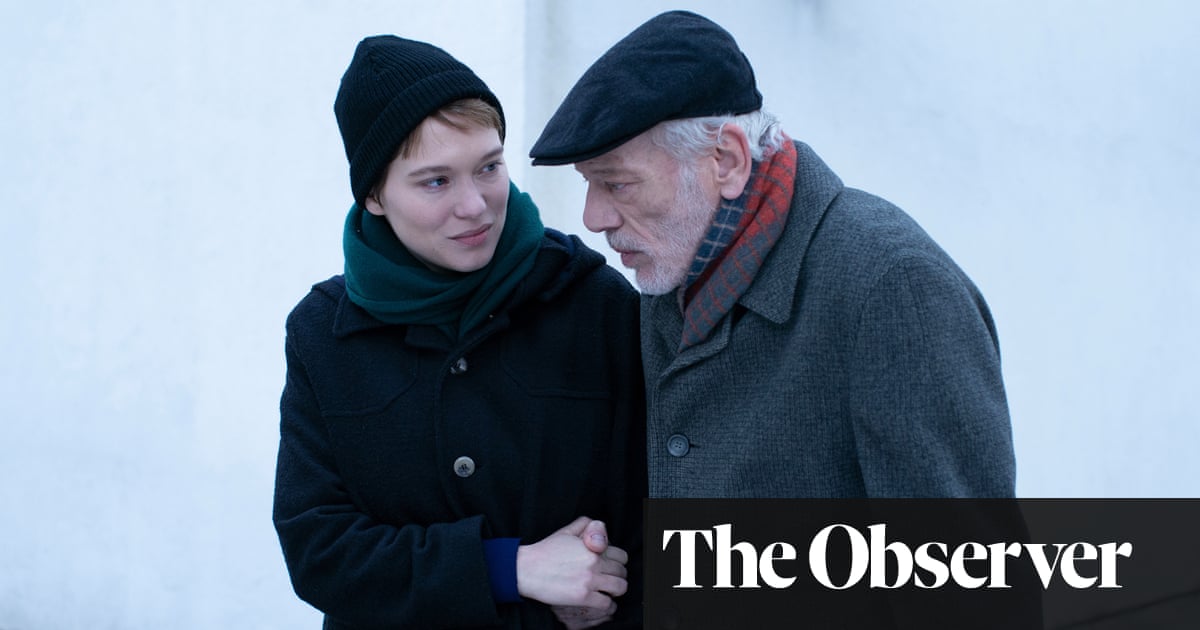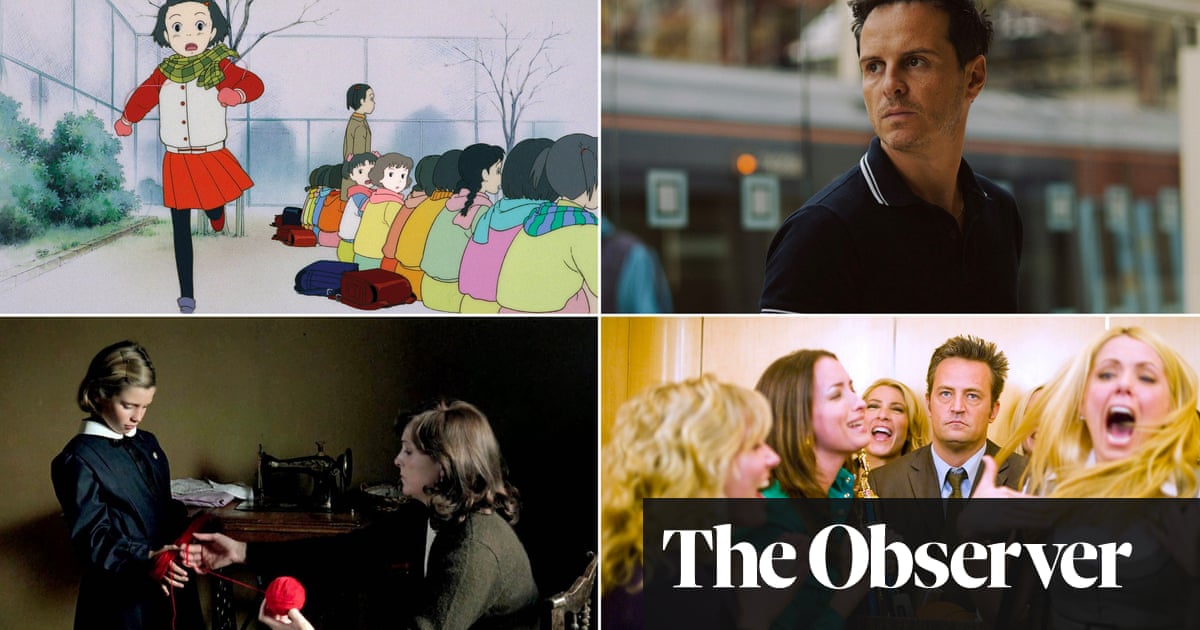
With more than £45m in the bank, 1917 is the year’s highest-grossing film in UK cinemas by a country mile, and as things stand, nothing’s breaking that record for the foreseeable future. If Sam Mendes’s big, punchy first world war epic was still on your to-see list when cinemas succumbed to lockdown in March, its digital release on Monday will come as a welcome quarantine care package.
You will have missed an opportunity, though. Justly rewarded at the Oscars for Roger Deakins’s propulsive, sleight-of-hand cinematography and its layered, pummelling sound design, 1917 remains involving and impressive in any format, but had more immediate sensory grandeur on the big screen. Setting aside the commotion over its smartly executed illusion of being shot in two long takes, Mendes’s film is a man-on-a-mission tale in a simple, even classical vein, thinly characterised in ways that somewhat curtail its emotional impact. The technical showmanship here isn’t mere window-dressing. It’s what makes the film distinguished and immersive in the canon of films about the first world war – which rarely gets such elaborate cinematic treatment, at least relative to the ongoing parade of pyrotechnically enhanced second world war spectaculars.
Perhaps it’s the knowledge of all that deathly bravado to come, however, that gives an additional sense of piercing tragedy to the greatest first world war films – many of which are available to stream, if you feel like situating Mendes’s blockbuster in context. Lewis Milestone’s All Quiet on the Western Front (BFI Player) is, astonishingly, 90 years old this year, and hasn’t dated a whit, neither in its strikingly crisp, clean, unadorned film-making, nor in its tough, unsentimental perspective.
It remains pretty much the master template for any anti-war film, its non-partisan depiction of daily life for German soldiers in the trenches as vividly harrowing in its way as Mendes’s missive from the opposite side. That it deservedly won the best picture Oscar in 1930 is all the more remarkable when you consider that the same award went the year before to Wings (Amazon), a sweeping, silent action romance that seems largely enamoured of its WWI airman derring-do until its slightly ungainly “war kills” coda. It’s smashing, old-school entertainment, but hasn’t aged nearly as gracefully. See also Howard Hughes’s ludicrously glamorous planes-and-dames spectacle Hell’s Angels (1930), available on the Internet Archive. It’s not much of a history lesson, but it’s a glistening romp.
More stately decorum returned in A Farewell to Arms (Amazon Prime), a handsome, stirring 1932 adaptation of the Hemingway novel that accrues a genuine lump-in-throat gravity to its doomed romance between Gary Cooper’s dashing ambulance officer and Helen Hayes’s Red Cross nurse. Still, Hollywood depictions of the war veered ever more toward grandstanding and patriotism: see Howard Hawks’s flawed but fascinating Sergeant York (Chili), a war-hero biopic caught between its subject’s anti-war principles and conservative cheerleading that spoke very much to the moment in 1941. It would take the French to bring some cynicism to proceedings: Jean Renoir’s peerless La Grande Illusion (1937), currently streaming on Mubi, still cuts deep with its humane, complex comedy, astutely threading class solidarity through opposing factions in its prisoner-of-war escape saga.
After that, it wasn’t until Stanley Kubrick’s still-breathtaking Paths of Glory (1957; iTunes) that the Great War got a cast-iron classic film, with a portrayal of trench warfare as unflinching as its thorny examination of the moral consequences. In 1981, Gallipoli, Peter Weir’s majestic, sun-scorched study (Amazon Prime) of Australian soldiers swallowed whole in the eponymous allied war campaign, brought a fresh national perspective to a genre dominated by American and European points of view.
Recent decades have brought fewer essential first world war dramas, unless you count Steven Spielberg’s claggy, custardy War Horse adaptation (2011), or a serviceable but standard-issue 2017 remake of that old chestnut Journey’s End. Over both of those – indeed, over 1917 – it’s James Kent’s exquisite, underrated 2014 Vera Brittain biopic Testament of Youth (Amazon Prime) that I return to. A rare, bracing treasure for its foregrounding of female perspective in a tale of war, it has the soaring swirl and plunging sadness of the very best.
More titles new to streaming this week
The Beach Bum
(Blue Finch, 18)
Harmony Korine’s first all-out stoner comedy never found a Spring Breakers-level following, but it’s mellow and enveloping if you’re in the mood, so to speak. If you’re not, at least the ice-cream tones of Benoît Debie’s cinematography make it a beautiful indulgence.
Richard Jewell
(Warner Bros, 15)
The businesslike nature of Clint Eastwood’s recent films works to the benefit of this gripping, dourly ambiguous biopic of the security guard caught up in the Atlanta Olympic Park bombing. The script wobbles, particularly on its gender politics, but Paul Walter Hauser and Kathy Bates are superb.
Water Lilies
(Mubi, 15)
With Portrait of a Lady on Fire having woken up a wider audience to Céline Sciamma’s brilliance, the time is right for Mubi to stream her shimmering 2007 debut – long unavailable in any format – which demonstrated her sensual command of the female gaze early on.
The Family Way
(StudioCanal, 12)
This re-release of the 1966 Britcom about newlyweds trapped under the same roof as the groom’s family certainly makes for timely quarantine viewing. The film itself is a charming time capsule, no longer edgy but gently wry, buoyed by Paul McCartney’s score.












